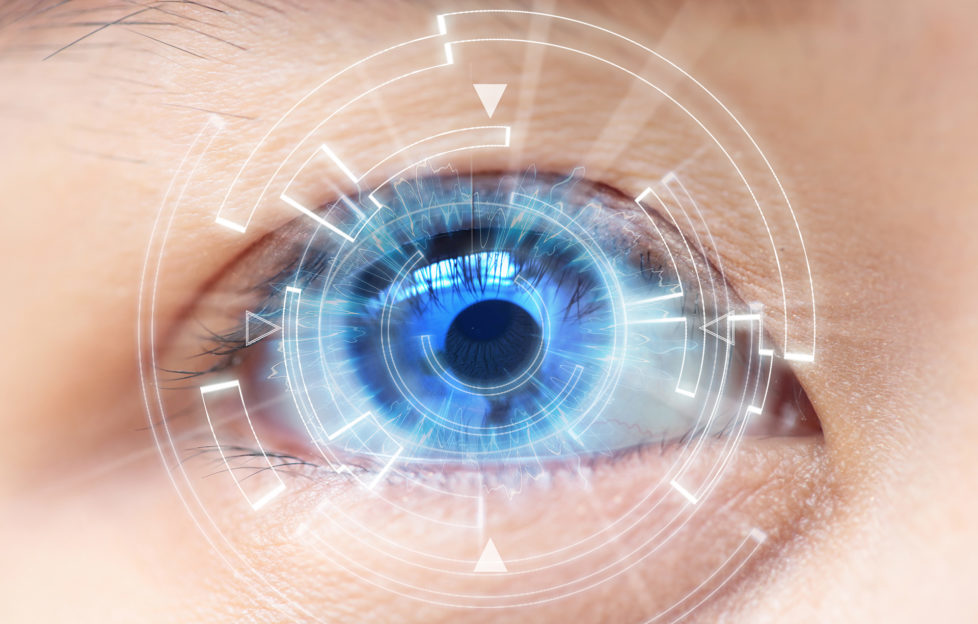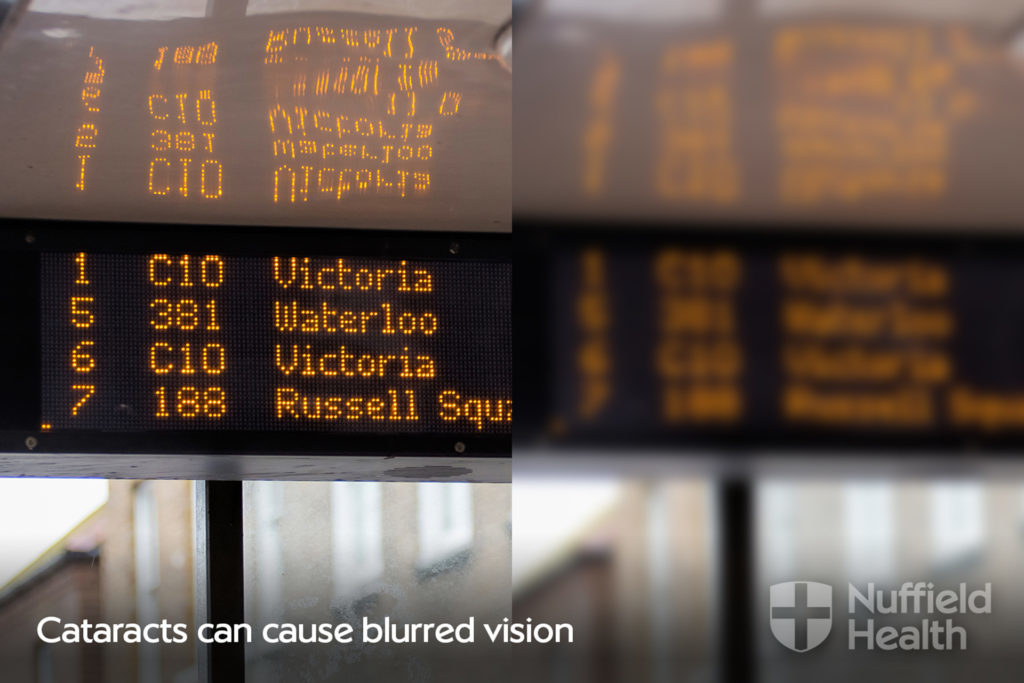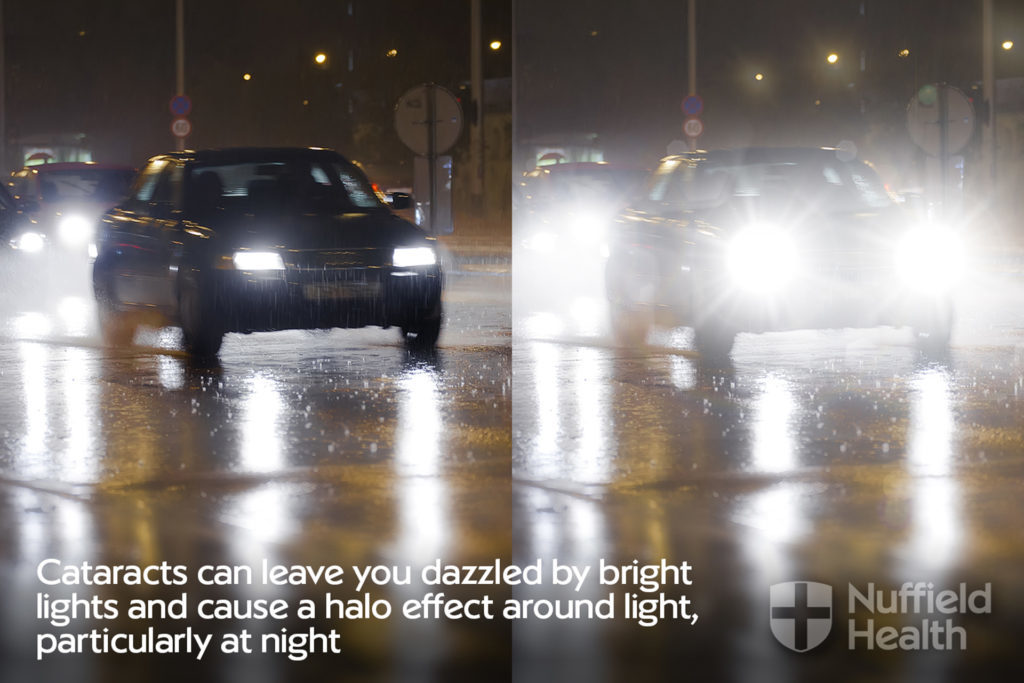4 Signs You May Have A Cataract

Cataracts affect many of us as we get older but acting early can reduce the impact they’ll have on your life. Ms Humma Shahid, Consultant Ophthalmologist at Nuffield Health Cambridge Hospital reveals four signs you might be developing them.
“A cataract clouds the lens inside your eye, affecting your vision in a variety of ways. Many people over 60 years old will have at least some amount present.
“Left to develop, cataracts will eventually leave you feeling like you’re looking through a frosted window. The problem can be easily fixed with surgery that removes the lens inside your eye and replaces it with a synthetic one to suit your purpose. Here are four signs you might need cataract surgery:
1. Blurry sight “One of the most common symptoms of cataracts is blurry vision. If you wear glasses, they may seem dirty. Don’t ignore blurred or misty sight.”

2. Dazzled by light “If car headlights and other bright lights leave you dazzled or unable to see clearly for a few moments, cataracts may be to blame.”

3. Colour changes “Cataracts can affect the colour of the world around you, and make things appear faded or washed out. Commonly, objects take on a yellow hue. If you notice these symptoms or are constantly disagreeing with friends and family about the colour of objects, speak to a specialist.”

4. Frequent change in spectacles “As your cataract begins to form, the lens inside your eye increases in size, which often results in needing to change spectacle prescriptions. As this becomes more frequent, it may be an early sign of developing a cataract.”
Tips For Reducing The Risk Of Developing Cataracts
Ms Humma Shahid, Consultant Ophthalmologist at Nuffield Health Cambridge Hospital says: “All too often, time is all that’s needed for cataracts to develop. Like any other part of the body, decades of use and exposure can cause deterioration. The changes are small at first, so little you won’t even notice. But as time goes on your risk of developing cataracts will inevitably rise.
1. Wear sunglasses – When too much UV light tries to enter your eye, the body will instinctively try to prevent it. Why? Focusing too much light through the eye’s lens and onto the retina can be extremely damaging to the eye. Not only has overexposure been linked to cataracts, but developing other eye conditions can also increase the risk. On bright sunny days, people should wear sunglasses and a wide-brim hat, avoid reading under harsh light and never stare directly at the sun.
2. Maintain a healthy weight – Obesity has been linked to all sorts of diseases including cataracts. The reason for the link is unclear, but researchers believe being overweight affects the quality of blood flowing to the eye, presenting an opportunity for early deterioration. Being overweight can also cause people to develop Type 2 diabetes. Again, the mechanisms aren’t clear, but research suggests people with diabetes are more likely to develop cataracts at a younger age. Stay active, eat well and avoid excessive alcohol to keep eyes healthy.
3. Exercise caution – Wear safety goggles when in a situation or environment that could expose eyes to chemicals, sparks, sharp objects and explosions – even minor ones. This is especially important for those who work regularly in these challenging environments.
4. Mind the medication – Taking prescribed medication is an important part of staying healthy, and in most cases the benefits greatly outweigh the risks. However, taking steroid-based medication over long periods of time, especially in high doses, is thought to be the most common drug-related cause of cataracts. It is important to check with healthcare professional to ensure correct dosage.”
5 Fast Facts About Cataract Surgery
Ms Humma Shahid, Consultant Ophthalmologist at Nuffield Health Cambridge Hospital says: “If a cataract prevents you from reading or driving, or doing your normal day to day activities, it’s advisable to have surgery so you can get back to living the life you want to lead. Eye surgery can be a daunting procedure, so here are some fast facts to help put minds at ease:
The procedure is usually performed under local anaesthetic and takes around 20 minutes
An ultrasonic probe is inserted through a tiny incision in the cornea (outer layer) of the eye. This breaks down the lens so it can be easily removed before a synthetic lens is inserted to replace it
While taking some precautions, patients can get back to normal activities within 48 hours
Vision will improve over a few weeks with most people fully recovered within a month
With surgery, over 95% of people who have no other eye disease will have their vision restored to a level that meets the driving requirements in the UK”
Find out how to get your life back on track without having to wait. Book a consultation at Nuffield Health.




